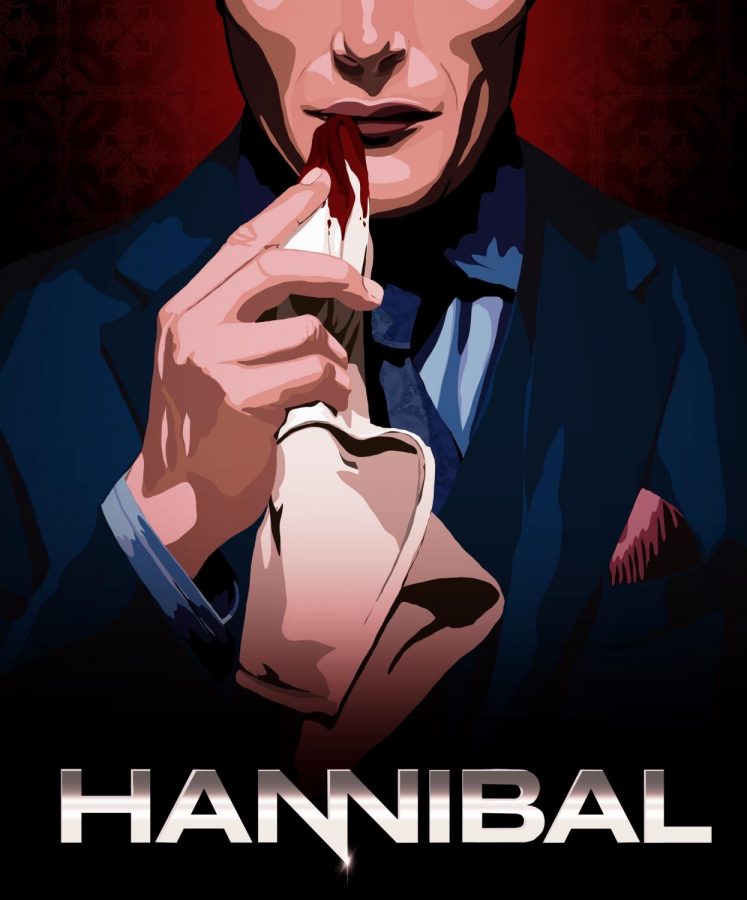NBC’s Hannibal Carves Path Ahead for TV
October 29, 2020
Rating: 5/5 Falcons
It almost feels like instinct to be fearful of Anthony Hopkins’ Dr. Hannibal Lecter: a realized silhouette of evil. His sadistic tendencies might have shaken the audience, but it was the supposed depth to his theatricality that lingered with viewers long after they drove away from the theater. Following The Silence of the Lambs’ perfect translation from the pages of Thomas Harris’ books, audiences were still left with questions as to Hannibal’s ever-elusive motives. Yet when that past was unraveled in subsequent entries in the franchise, they never arrived with any more reason to fear the cannibal. When these sequels tried to add their own layers to the legend, they soon found out how dissection usually kills the subject in the process. So in 2013, when NBC chose to assemble a new show around these established characters, and with this thick knot of subtext now ten years in the rearview, a new version of Hannibal Lecter had to be invented, one with the capacity to make a whole new audience thankful for the boundaries of fiction.
By design, instead of sacrilegiously impersonating Hopkins’ Hannibal, Mads Mikkelson is freakishly able to convince the viewer he has a sick mind in every way from his wardrobe to his posture. While you could contrast minutiae in their performances, it’s almost unfair to label their distinct creations as the same individual, when there’s no attempt to join them together in the first place. Mikkelson’s portrayal anchors the new show. Described by series creator Bryan Fuller to be “The Devil,” the Hannibal Lecter shown here is a man entertained by his own wicked actions, occasionally appearing more satisfied with his ability never to be caught than with the act itself.
While Hannibal may be the namesake of the show, it is possibly more the story of Will Graham (Hugh Dancy). While Lecter hides behind a carefully assembled exterior, Graham appears in frame as an instructor for the FBI academy, unique in what he calls an “empathy disorder.” This provides creative excuses for the writers to include other, gratuitous crime scenes from the perspective of the perpetrator. Exploiting the over-saturation of blood and gore in entertainment, the show forces you to see what Graham sees in his work, and while the viewer might feel protected behind the fourth wall in their screens, the more depraved the crime scene, the further Graham falls into a loss of identity. Until, cultured therapist Hannibal Lecter extends his couch to Graham, and over the course of Lecter’s treatment, lays seeds in the criminologist’s mind, laying the groundworks for three dense seasons of TV. The story structure provided by Graham and Lecter’s fickle power dynamic is only comparable to something like Sherlock and Moriarty, as each man plays masterfully with the life of his counterpart, removed from the rest of the world.
Far too much of this review could have been spent exploring the artful violence of NBC’s Hannibal. Felt both in the thematic reverberations violence leaves by its permanence, and the sophisticated presentation of violence: the act. Renowned upon release for its innumerable sick, yet elegant displays of violent means (most distinctly, at the dinner table), Hannibal is a show that has enjoyed a long shelf life as fans still return for its sharp writing and realized characters. While it was sadly taken off air in 2015 after its third season, a cast-backed push to revive the series on one streaming service or another seems to be closer than ever towards realizing a fourth season.
A theatrically gory show that might take itself too seriously can either be your thing or not. Those disinterested by the concept won’t have the urge to engage in the show, but the few who should like Hannibal will love it.











